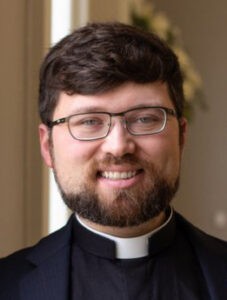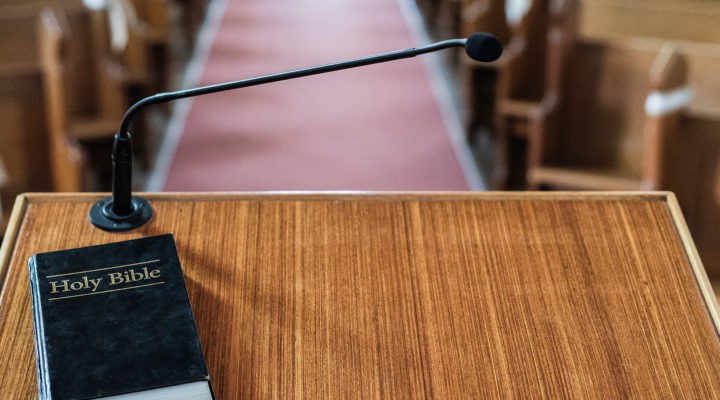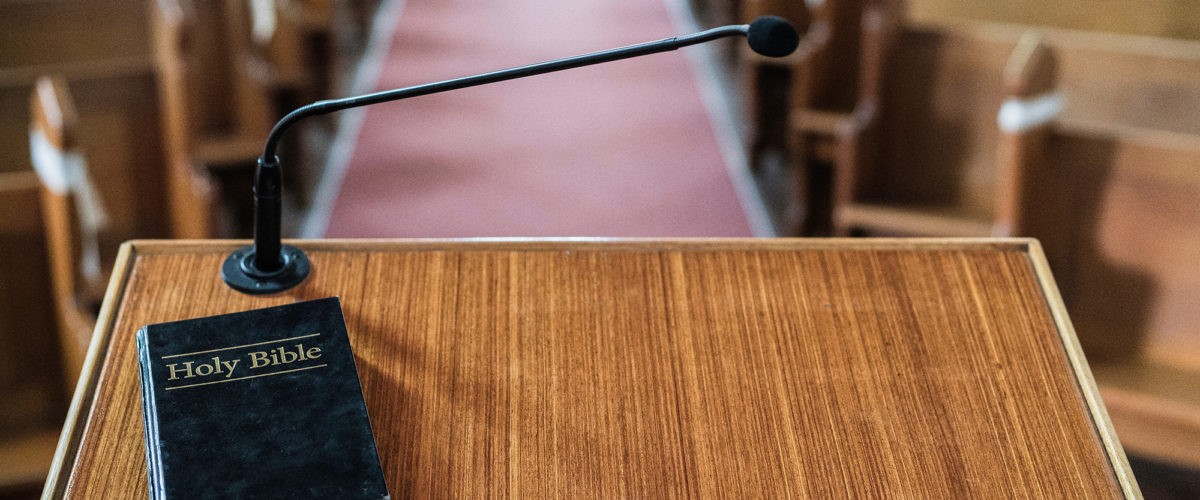Only one Sunday remains until Election Day. With a candidate on the ballot who promises to be a dictator on day one, the stakes could not be higher — for the church or for democracy.
The truth is the vast majority of American Christians reject the manipulation and abuse of faith exemplified by ex-President Donald Trump and his court pastors. Despite this, too few clergy are shepherding their congregations away from the conspiracy theories and January-6-style violence of far-right Christian nationalism and toward Jesus’ teachings of love, truth and peace.

Nathan Empsall
Some aren’t sure how to do so because of a desire to respect the separation of church and state, while others may avoid preaching about the election due to uncertainty about their audience or the moment.
The separation of church and state is a sound and fundamental tenet of American democracy. At the same time, we Christians who believe in social justice and beloved community must engage with a political system that shapes the lives of God’s children. There are legal ways for us to morally respond to the theological blasphemy of those who claim that God has an “anointed” candidate, and to call out the twisting of faith and misinformation at the root of Project 2025 and Christian nationalism. The stakes are too high not to say anything.
“There are legal ways for us to morally respond to the theological blasphemy of those who claim that God has an ‘anointed’ candidate.”
This does not mean pastors should be making endorsements from the pulpit. Putting our faith into action is not the same as making our faith the law of the land — indeed, Jesus never used coercion to spread his teachings. Our action is instead about preaching the gospel truth of loving all our neighbors, regardless of their gender, sexual orientation, race, address, income or religion.
Clergy and church leaders can say and do a great deal this year to protect democracy, social justice and freedom while following IRS guidelines and respecting the separation of church and state. Pastors can serve as poll chaplains, offering a calming presence at the polls. Churches can register voters and, in most states, provide rides to the polls.
As long as we don’t tell parishioners whom to vote for or against, there are multiple ways preachers can educate their churches about the issues that are at stake in this election — and how those stakes follow or contradict our churches’ teachings.
Pastors and preachers can start by explaining to their communities that the rightwing activists filling the headlines do not, as these activists often claim, speak for all Christianity. Perhaps the best way to do this is to teach that rightwing pastors and self-proclaimed prophets like Lance Wallnau, who recently hosted JD Vance on his apostolic tour in Pennsylvania, are committing blasphemy when they say that God has “anointed” or “chosen” a given candidate.
“We should seek to be on God’s side rather than claiming God is on the side of any flawed politician.”
In making this point, preachers do not need to mention the golden calf of Wallnau’s devotion, Donald Trump. It is more than sufficient to stick to the theological argument that God has given us free will to elect presidents, and that, to channel Abraham Lincoln, we should seek to be on God’s side rather than claiming God is on the side of any flawed politician.
At Faithful America, the Christian organization where I work, our lawyers tell us such sermons are permissible because they merely share theological education about blasphemy, and because they focus on a critique of pastors rather than the politicians these pastors support.
Pastors also can educate their congregations about the stakes of the election by discussing the dangers of Project 2025.
Project 2025 is, as has been widely reported, a 900-page conservative agenda for the next presidential administration, authored by the conservative Heritage Foundation. The document urges the next president to pursue policies many churches have long opposed: Dismantling the Department of Education, eliminating the social safety net for those in poverty, repealing most LGBTQ rights, turning away immigrants and refugees, and gutting environmental protections for God’s creation, among other cruel policies. More even than this, the handbook lays out how a president can accomplish these policies almost unilaterally by expanding executive power in unprecedented, authoritarian ways.
This document isn’t just of concern to churches and preachers because it contradicts our values, or even because its authoritarian tendencies resemble some of the most unjust rulers found in biblical cautionary tales. It is also, quite simply, false Christian teaching that we must distance churches from.
“We cannot let the Christian nationalist leaders behind Project 2025 position themselves as representatives of our full faith and tradition.”
With an advisory council full of divisive religious-right organizations like the Family Research Council (designated a hate group by the Southern Poverty Law Center), Turning Point USA, Hillsdale College, Alliance Defending Freedom and Liberty University, Project 2025 is a document guided by Christian nationalism from the very start. It is a dangerous roadmap that warps and distorts our faith, and preachers should make it very clear that we cannot let the Christian nationalist leaders behind Project 2025 position themselves as representatives of our full faith and tradition.
Finally, while it is imperative that preachers lift a prophetic voice against both the rise of authoritarian American fascism and the hijacking of our faith, it is equally imperative for us to share what we are for — and what we believe Jesus is for.
We cannot and should not tell our parishioners whom to vote for or against, but we can encourage them to vote, and we must urge them to do so with Christ-like values in mind: Values like peace, equality, justice and love for all our neighbors, including our LGBTQ sisters and brothers, those seeking reproductive care and abortion access, immigrants and refugees, those in poverty, and even the climate itself.
Whatever we do for the least of these, we do for Jesus himself, and voting to support their dignity and rights is no exception.
Nathan Empsall is a priest in the Episcopal Church and executive director of Faithful America. He holds a master of divinity degree and a master of environmental management degree from Yale University.
Related articles:
Trump calls immigrants ‘garbage’ but evangelicals see dignity and humanity | Opinion by Napp Nazworth
3 things I learned from discussing politics in the church | Opinion by Alan Rudnick
The political pulpit | Opinion by Rosaly Guzman


